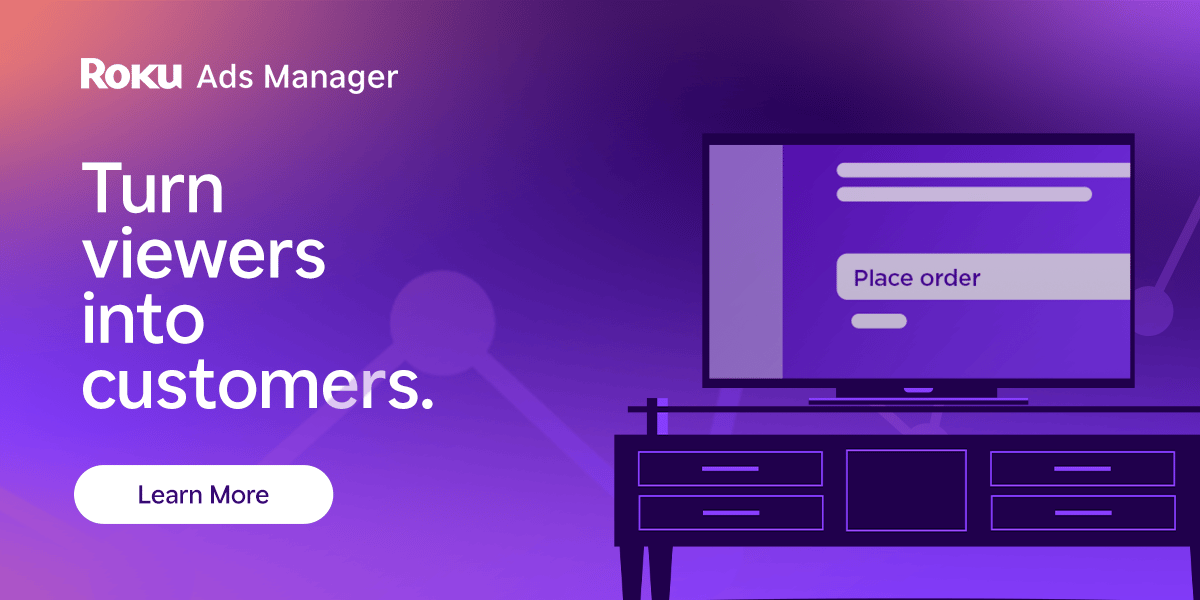Salutations, Olio aficionados! 👋
Welcome to the 204th edition of Weekly Olio. We’re thrilled to introduce a fresh new twist to your Sundays: Publisher Parmesan, our hand-picked, thoughtfully crafted edition designed to spark inspiration and insights for the week ahead.
It’s the perfect way to unwind, recharge, and prepare for the week with something truly worth savoring.
If you’re new here and you’re looking for more long-form, crispy writing, click the link to subscribe under this GIF 👇

A word from our Sponsors…
Shoppers are adding to cart for the holidays
Over the next year, Roku predicts that 100% of the streaming audience will see ads. For growth marketers in 2026, CTV will remain an important “safe space” as AI creates widespread disruption in the search and social channels. Plus, easier access to self-serve CTV ad buying tools and targeting options will lead to a surge in locally-targeted streaming campaigns.
Read our guide to find out why growth marketers should make sure CTV is part of their 2026 media mix.
LG India and the Price of Trust
It’s not every day that a company makes history just by going public. But earlier this month, when LG Electronics India hit the stock market, it didn’t just list — it erupted.
The ₹11,600-crore IPO drew bids worth over ₹4 lakh crore, making it 54 times oversubscribed. Institutional investors alone demanded 166 times the shares on offer. And when the stock finally listed, it didn’t just inch up — it soared nearly 50% above its issue price of ₹1,700.
That kind of frenzy isn’t just market momentum. It’s investor affection — the rarest kind, built not on hype but on reputation.
Because this isn’t just another consumer brand story. It’s about how a Korean electronics giant turned its Indian arm into a cash machine built on something that the modern corporate world often undervalues: trust.
LG’s parent in Seoul built the brand. But its Indian subsidiary built the business. And now, with the IPO proceeds going entirely to Korea (since it was an offer for sale, not a fresh issue), the question is no longer whether LG India has succeeded — it’s whether it can keep doing so when the playbook that got it here may no longer work.

Over three decades, LG India has quietly mastered the art of staying in power. It didn’t win the market through discounts or flash sales. It won through relationships.
Retailers don’t call LG a supplier. They call it a partner.
Executives routinely visit small-town shops, share meals, check on inventory — and if sales targets aren’t met, they often let retailers keep their margins anyway. Nearly half of LG’s trade partners have stayed with the company for over a decade.
That kind of loyalty doesn’t come cheap. LG frequently absorbs its retailers’ burdens — offering credit, covering unsold stock, or extending margin support when needed. The result: it converts only 60% of its operating profits into free cash flow, compared to Samsung’s 78% and Whirlpool’s 95%.
But the strategy works — because LG applies the same philosophy internally.
Attrition at LG India fell to below 8% in FY2025, down from 11% two years earlier. By contrast, Samsung reportedly laid off 200 executives in 2024. Stability matters. When LG’s senior management visits a city like Vijayawada, they don’t just drop into a Reliance Digital outlet — they visit local dealers, ask about sales, and listen.
That listening has real business consequences. When an unexpectedly rainy quarter dampened AC sales, LG didn’t end up with unsold stock. Its planning teams had already adjusted production after hearing from retailers on the ground.
The result is a rare moat of goodwill — and equally, a balance sheet that moves slower than rivals’. LG takes 16 days to collect payments, compared to Samsung’s 12 and Blue Star’s 9.5.
That cash, tied up in trust, could otherwise fund new investments — like its planned ₹5,000-crore manufacturing plant in Andhra Pradesh.
So yes, LG’s generosity built an empire. But can it build the next one?
Offline by Design
In an age when every company claims to be “digital-first,” LG is almost anachronistic. It’s still a store-first brand.
Most of its products are sold through India’s vast network of small retailers, not through Amazon or Flipkart. And that’s by design.
While Samsung routinely sells cheaper online variants of its TVs — sometimes ₹5,000 to ₹6,000 less — LG keeps the price gap smaller, between ₹1,500 and ₹3,000. That decision may frustrate online shoppers, but retailers love it. It keeps footfalls steady and confidence high.
This consistency has created a stable, predictable sales engine. But it also means LG rarely joins the online discount wars that drive festival-season spikes.
A Flipkart category manager recently told a colleague that getting competitive deals from LG is “a challenge.” Samsung, by contrast, will flood e-commerce warehouses with 80,000 units of a hot-selling model, sweeten margins, and ride the volume wave.
LG plays a slower, steadier game. Its single, unified sales team, led by Chief Sales Officer Sanjay Chitkara, handles both online and offline channels — a structure that keeps operations aligned but may also limit speed and flexibility.
Where Samsung optimizes for reach, LG optimizes for relationships. And that’s both its moat and its risk.
A Framework for Smarter Voice AI Decisions
Deploying Voice AI doesn’t have to rely on guesswork.
This guide introduces the BELL Framework — a structured approach used by enterprises to reduce risk, validate logic, optimize latency, and ensure reliable performance across every call flow.
Learn how a lifecycle approach helps teams deploy faster, improve accuracy, and maintain predictable operations at scale.
For years, LG has built India’s middle class dream — the reliable refrigerator, the quiet AC, the television that just worked. But its new ambition is very different: profit maximization.
LG now wants to move beyond the mid-range to premium OLED TVs, high-end ACs, and smart appliances. It’s already expanding its footprint in modern retail — Reliance Digital, Croma, Vijay Sales — increasing its presence in such stores by a third in FY2025 alone, adding 16 more in just one quarter.
But in chasing premium margins, LG is consciously leaving behind the entry-level segment — the very one that made it a household name.
That’s where Voltas, Lloyd, and Haier are moving in fast. Even newer TV players like Xiaomi and TCL are slicing off chunks of LG’s share. The company openly acknowledges this in its IPO filing — admitting that it is “deliberately taking a hit on market share to go premium.”
It’s a bold strategy. But also a risky one, especially with cheap imports from China and Vietnam flooding the Indian market.
Yes, LG was the first to bring OLED screens to India. The first to make inverter ACs a standard. But now, Samsung leads in premium refrigerators and washer-dryers — segments that LG once dominated.
So the question is no longer whether LG can sell more. It’s whether its biggest strength — its human-first, trust-based operating model — can survive the shift toward efficiency and scale.
The Paradox of Success
There’s something poetic about a company built on generosity now being tested by the demands of profitability.
LG’s story in India has always been about how it wins, not just that it wins. It built an empire of loyalty in a market that rewards aggression. It turned soft skills — patience, empathy, listening — into hard economic results.
But the playbook that delivered three decades of dominance may not deliver the next one. Going premium means more automation, tighter margins, and less room for the flexible, relationship-driven model that defined LG’s culture.
The risk is that the very thing that made LG beloved could now hold it back from becoming as profitable as its rivals.
And maybe that’s the paradox of success — that the habits that built your empire are the hardest ones to outgrow.
Interested in learning more about Indian IPOs? Check out our previous coverage here:
That’s all for this week. If you enjoyed this edition, we’d really appreciate if you shared it with a friend, family member or colleague.
We’ll be back in your inbox 2 PM IST next Sunday. Till then, have a productive week!
Disclaimer: The views, thoughts, and opinions expressed in the text belong solely to the author, and not necessarily to the author's employer, organization, committee or other group or individual.


